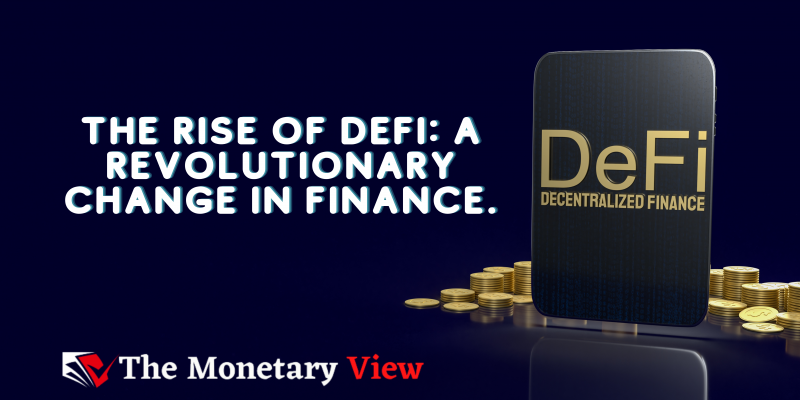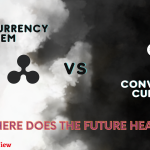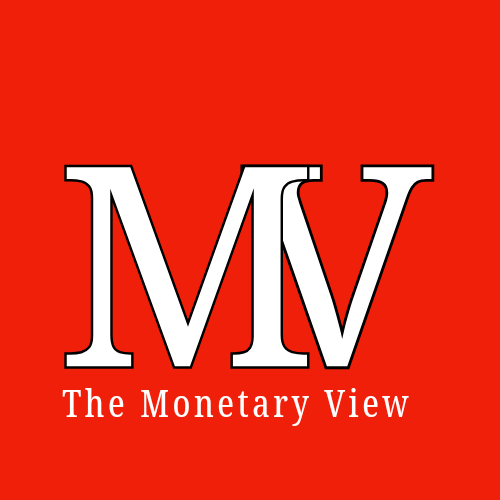DeFi, short for “Decentralized Finance,” encompasses a spectrum of financial applications and platforms that are built on blockchain technology and function independently, bypassing the necessity for intermediaries like traditional banks or financial institutions.
In recent years, the financial landscape has undergone a remarkable transformation with the advent of Decentralized Finance (DeFi). DeFi offers open, permissionless, and decentralized alternatives to a wide range of financial services, disrupting conventional financial systems.
What is DeFi? DeFi, short for Decentralized Finance, comprises a set of blockchain-based financial applications and platforms that operate without the need for intermediaries like banks or traditional financial institutions. It harnesses blockchain’s decentralized nature to grant users direct control over their assets and financial activities.
- Decentralization: DeFi platforms are built on blockchain networks, such as Ethereum, which operate on a decentralized and trustless basis. This means that financial transactions and services are not controlled by a single entity, like a bank or government. Instead, they are governed by a network of nodes and smart contracts.
- Open Access: DeFi is accessible to anyone with an internet connection and a compatible wallet. This inclusivity is a stark departure from the traditional financial system, which often has high barriers to entry and excludes many individuals and regions.
- Interoperability: DeFi projects are designed to work seamlessly with one another. This allows users to take advantage of a wide range of financial services, from lending and borrowing to trading and yield farming, all within a single wallet and ecosystem.
- Smart Contracts: Smart contracts are self-executing contracts with the terms of the agreement directly written into code. DeFi platforms utilize smart contracts to automate and enforce financial agreements, reducing the need for intermediaries and associated costs.
- Lending and Borrowing: DeFi platforms enable users to lend and borrow assets without going through a traditional financial institution. This can be more efficient and often provides better interest rates for both lenders and borrowers.
- Decentralized Exchanges (DEXs): DeFi includes DEXs, which allow users to trade cryptocurrencies and tokens directly without an intermediary. These platforms are often open 24/7 and provide liquidity for a wide range of assets.
- Yield Farming and Liquidity Provision: DeFi introduces concepts like yield farming and liquidity provision where users can earn rewards by providing liquidity to decentralized markets. This has led to innovative strategies for passive income.
- Challenges and Risks: DeFi is not without its challenges. Security risks, smart contract vulnerabilities, and regulatory concerns have surfaced. Users need to exercise caution and conduct due diligence when participating in DeFi.
- Regulatory Scrutiny: Governments and regulators are increasingly focusing on DeFi, seeking to apply traditional financial regulations to this space. How DeFi interacts with existing financial laws and regulations remains an evolving issue.
- Innovation and Evolution: DeFi is constantly evolving, with new projects, services, and concepts emerging regularly. Innovations, such as decentralized identity, synthetic assets, and cross-chain interoperability, continue to shape the DeFi landscape.
The rise of DeFi has revolutionized the financial sector by offering a decentralized alternative to traditional finance. With its focus on inclusion, innovation, and financial sovereignty, DeFi has attracted a global user base, fostering a rapidly growing ecosystem of decentralized applications and protocols. While challenges like security and regulation persist, the potential impact of DeFi on the financial landscape cannot be underestimated. As the DeFi space matures, it has the potential to reshape the global financial system, providing a more open, accessible, and equitable future for finance.







